Uses for balm:
-
Cuts, sores and scrapes
-
Acne (before and after they pop)
-
Mosquito bites (before and after they’re scratched)
-
Chapped Lips
-
Eczema & dry skin
-
Wrinkles & puffy eyes
-
Anywhere your skin needs healing
5 ingredients
(Click the links to Purchase):
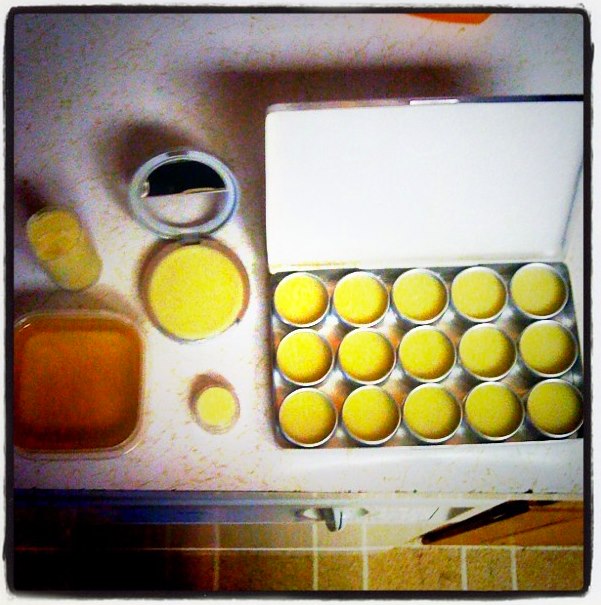
Neosporin – $11 per oz.
Neosporin costs about $11 an ounce and has the following active ingredients: Neomycin Sulfate, Polymyxin B, Bacitracin Zinc, Pramoxine, etc. Just some side effects of these chemicals include: muscle twitching, convulsions, hearing loss, fetal harm, irreversible congenital deafness in children, rash, hives, tightness in the chest, burning, hives, and the list goes on. Seriously?
I’m willing to bet that no one reading this has ever had those side effects from Neosporin, but the fact that we’re putting these harmful ingredients on our skin for an exorbitant cost seems kind of silly to me when natural, inexpensive products are readily available.
Truthfully, I used to think this homemade natural stuff was hippy nonsense until I took a chance and tried it for myself. Just look at all the life-giving benefits of these ingredients below versus the chemicals in Neosporin.
Homemade – $1.17 per ounce
Lemon Oil
- Antiseptic, antibacterial, astringent, anti-viral
- Relives acne
- Heals cuts and wounds
- Soothes itchiness caused by bug bites
- Relieves eczema
- Improves signs of aging
- Reduces age spots
- Improves oily skin
Tea Tree Oil
- Antibacterial, anti-fungal, antiviral, immuno-stimulant
- Heals infectious wounds, insect bites, zits and warts
- Eases symptoms of acne, rashes and skin conditions
- Effective against fungus
- Clears dandruff and thrush
- Reduces acne, eczema, psoriasis and inflammatory skin conditions
- Encourages burn healing
- Reduces itching and inflammation with insect bites and stings
- Reduces blistering and peeling
Lavender Oil
- Antiviral, Antibacterial, Anti-inflammatory, Antiseptic
- Relives burns and sunburns
- Scent reduces migraines and insomnia
- Helps insect bites
- Helps eczema and skin problems
- Scent reduces stress and tension
- Reduces acne
- Bugs and bacteria
- Burns, cuts and wounds
Coconut Oil
- Antibacterial, antiviral, anti-fungal, anti-microbial
- Centuries old skin remedy
- Naturally traced with Vitamin E
- Treats minor burns and sunburns
- Promotes cell regeneration
- Treats wrinkles
- Promotes clear skin
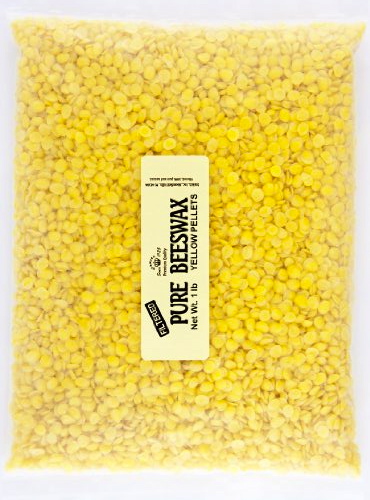
Beeswax
- Anti-inflammatory, antibacterial, antiviral, emollient, humectant
- Forms protective barrier on the surface of skin
- Protects against irritants while allowing skin to breathe
- Mixed with balm helps reduce chapped lips
- Seals moisture in
- Softens and rehydrates cell reconstruction
- Inhibits fungus
- Improves diaper rash and bacterial skin conditions
To Make:
For a firmer balm: Add 2 parts coconut oil and 1 part beeswax to a sauce pan on low heat.
For a softer balm: Add 3 parts coconut oil and 1 part beeswax to a sauce pan on low heat.
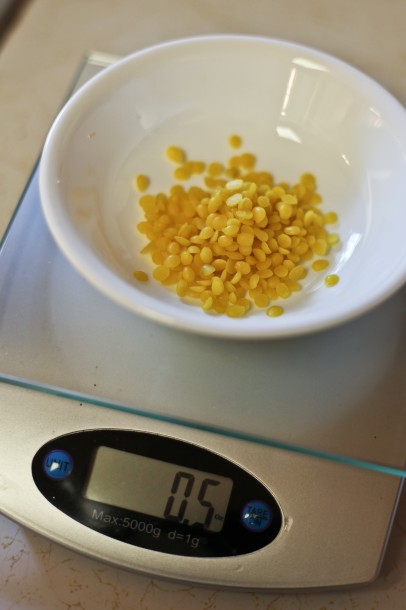
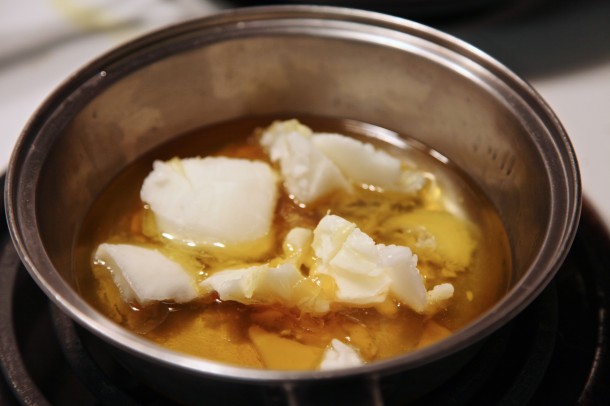
Melt down the beeswax and coconut oil and turn off the heat.
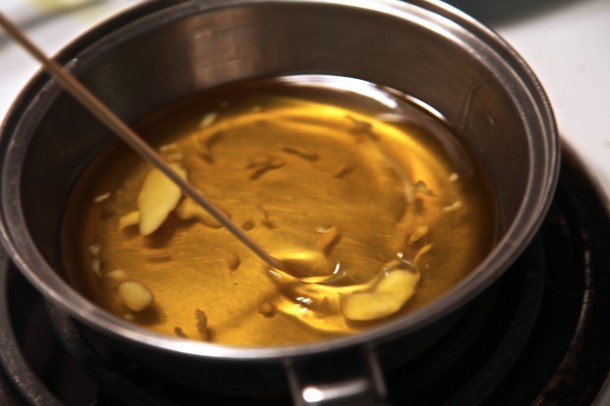
How much essential oil you add depends on how strong you’d like each ingredient to be. For about 1.5 cups of balm I used about 20 drops of lemon oil, lavender oil, and tea trea oil EACH.
Feel free to add different essential oils or more of one than another!
Pour the melted liquid in separate containers or one large container.
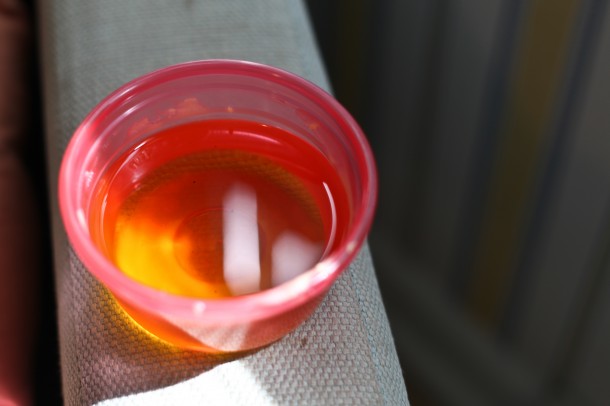
In my experimenting, at one point or another I put too much beeswax in it, so I wanted to show you what too much beeswax looks like. If you pour a little bit out and let it harden, and then run your finger in it, it shouldn’t feel tacky. It should feel hard, then when you dig in, it should feel soft. Too much beeswax will feel sticky and will not smudge smoothly.
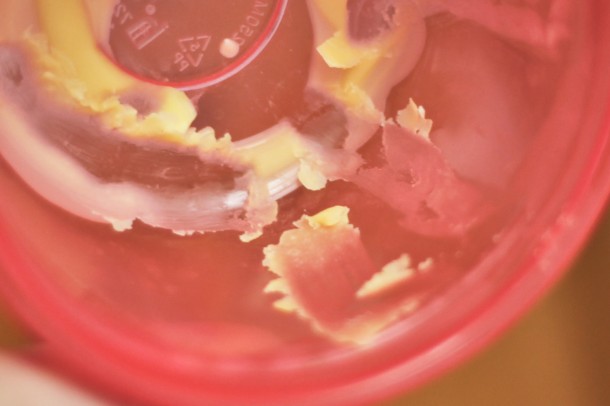
Probably enough balm to last me a year!
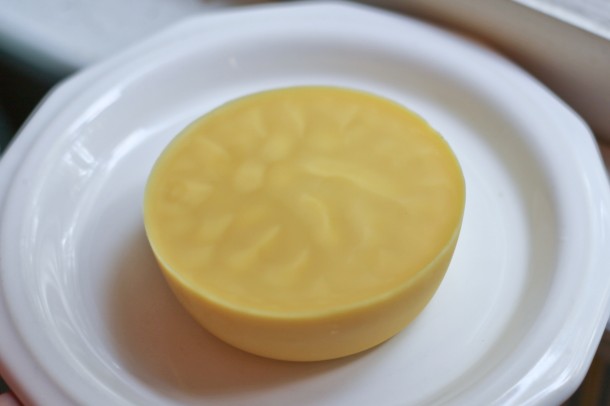
This is a great reason to not throw away random little makeup containers!

I’ve made many containers for my friends and they’re CRAZY about this stuff. One friend’s husband uses the balm on the tops of his hands after a long day’s work. I use it on my face, especially around my eyes, every night. Safe and natural, the way self-care should be!

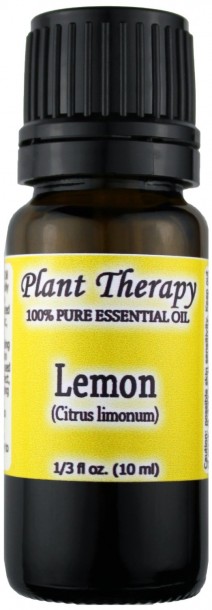
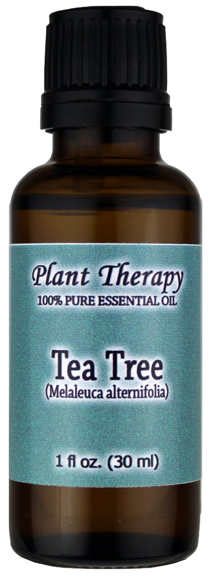
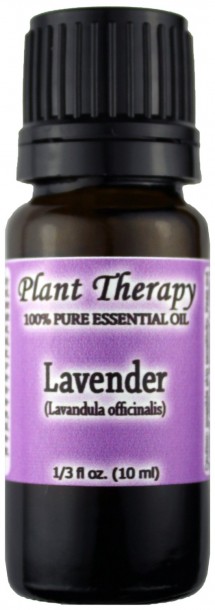
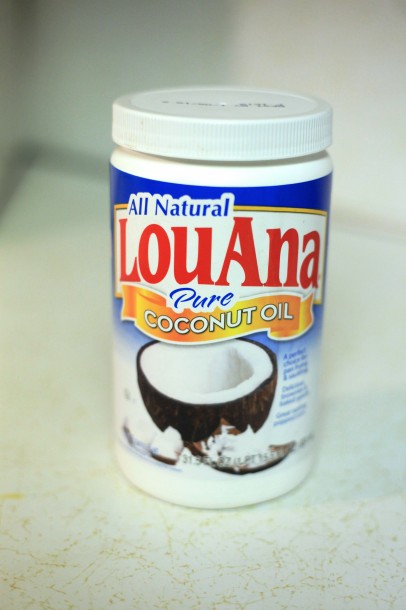
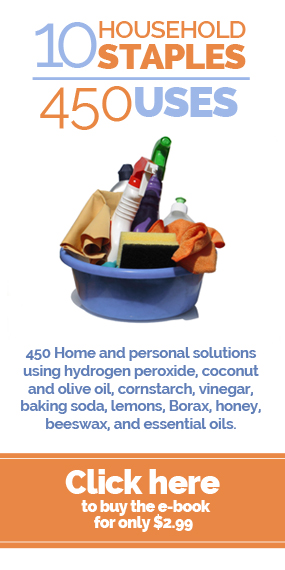
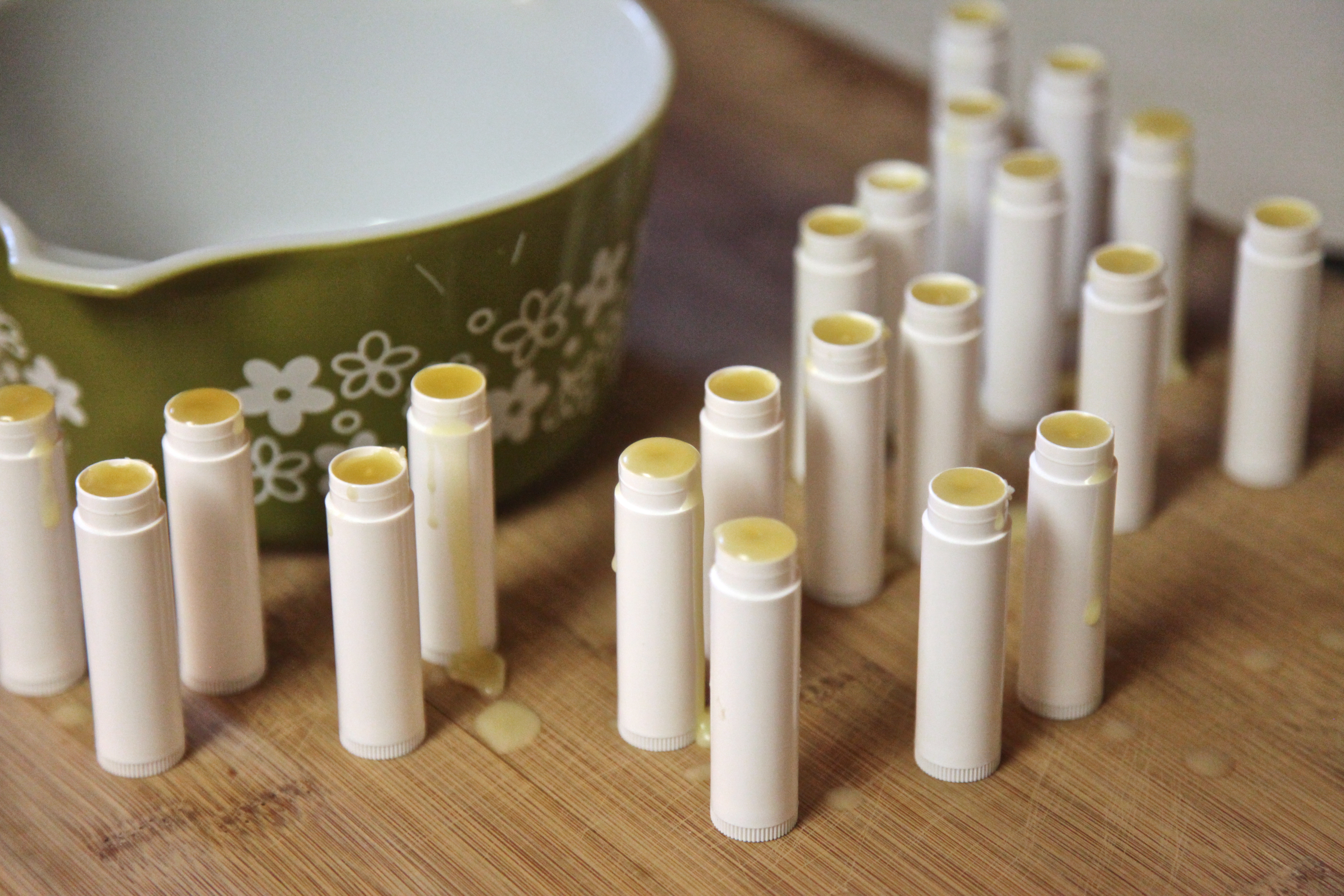
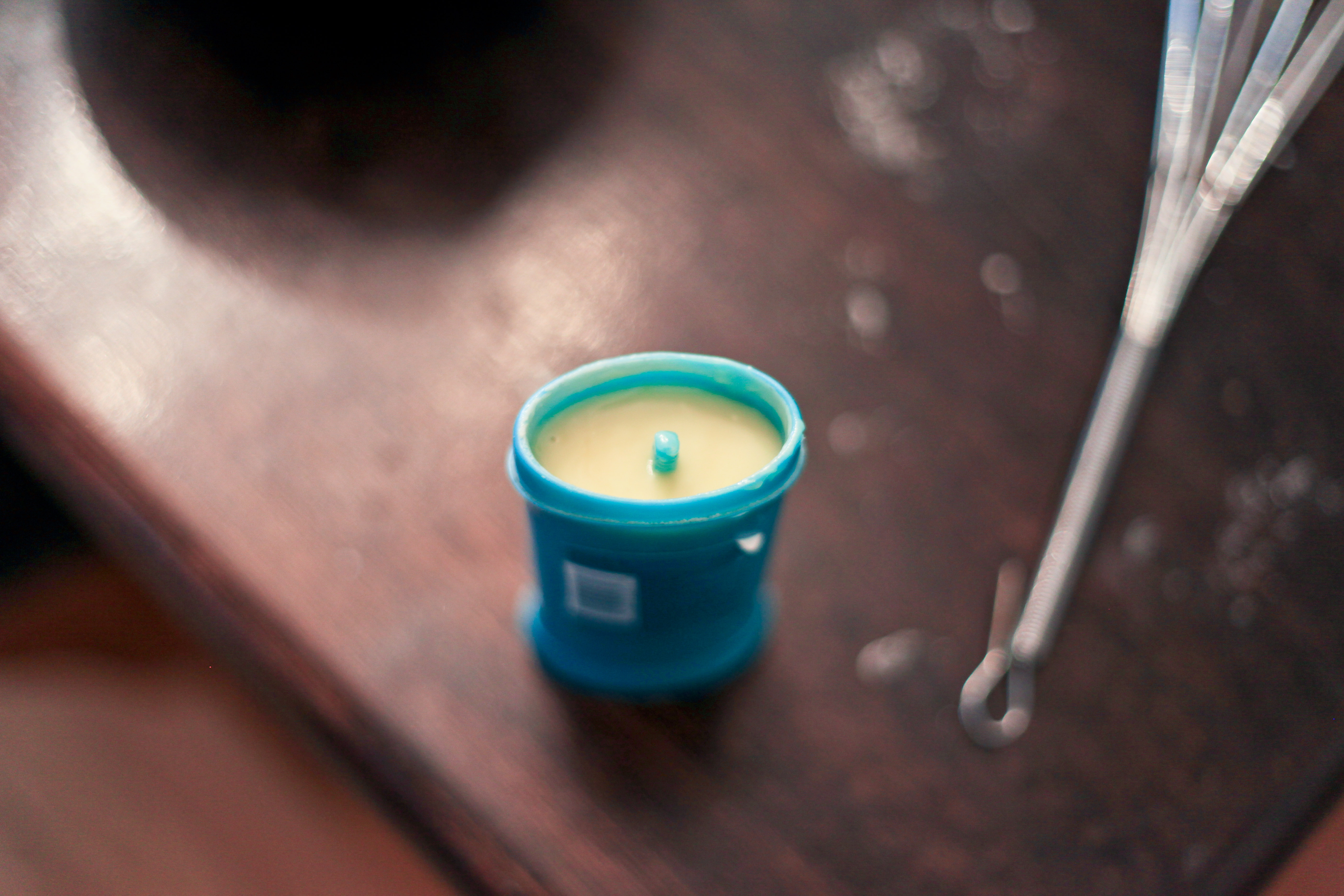
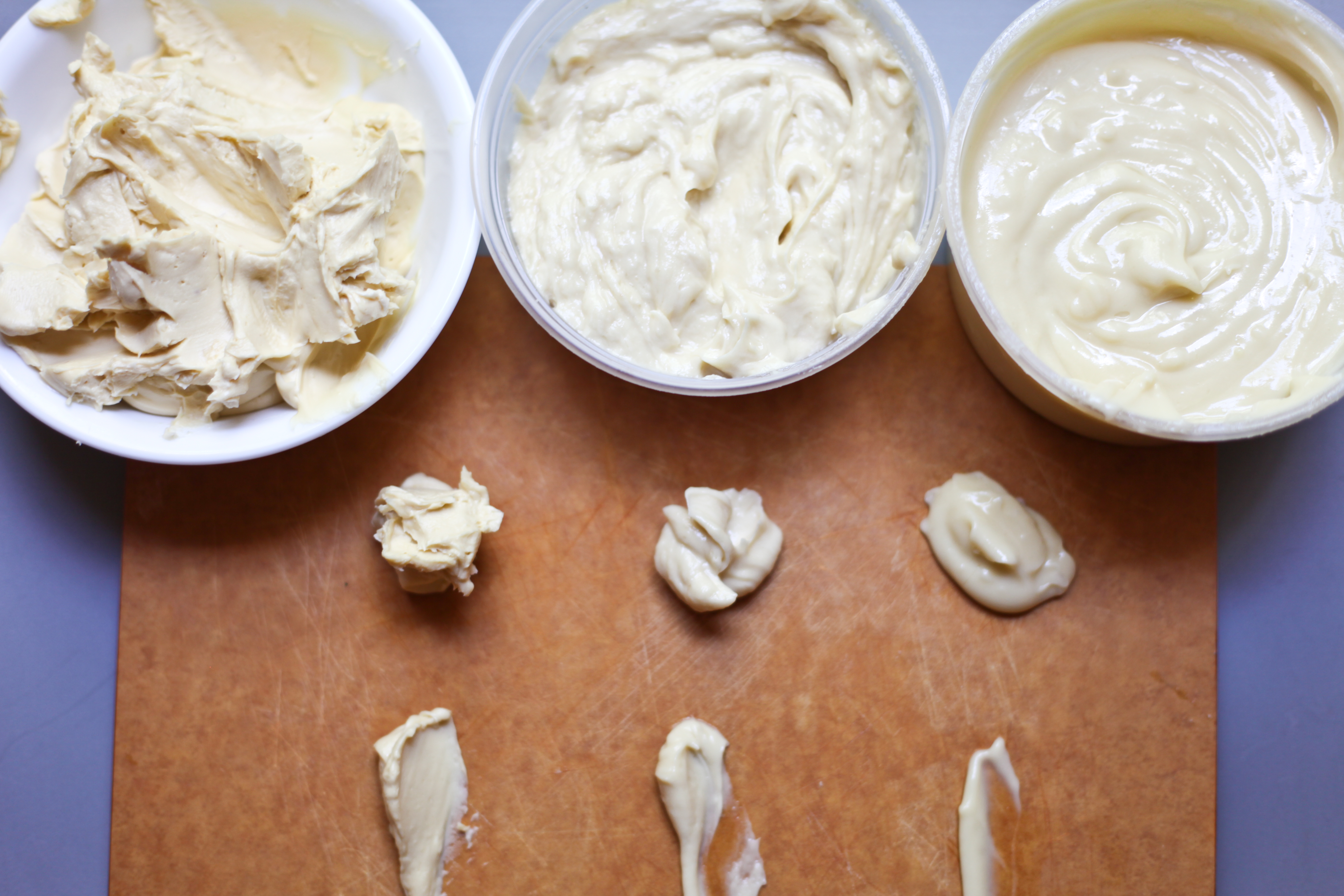
I know i am late to the party but I just wanted to mention that you should not use this on lips. Tea tree in any form is poison when ingested. Probably wont ingest much but why take a chance. However it is great for healing the skin, this recipe looks awesome.
About how long will it last, if it had to be stored? I guess a better question is, What is the shelf life? Thanks!
I stumbled upon this when searching for homemade antibiotic ointment alternatives after getting 5 stitches put on my eyelid. This is a simple recipe that costs me practically nothing since I already had most of the essential oils in my house. A small square of beeswax only cost me 79 cents and the coconut oil of course is a mainstay in my house. I used the the 3:1 ratio and the texture turned out smooth and soft just like your picture. Anyway, just wanna say thank you for posting this!
This is a lot of essential oils. How much coconut oil and beeswax for the 60 drops of oil? I see the 3:1 or 2:1 ratio; but need to know what is meant by “part”? Is it a Tablespoon, teaspoon, etc? Thanks so much.
I was wondering the same thing. Based on the 1.5 cup you mentioned, and your ratios – I assume you used 1 cup CO and .5 cup beeswax?
You really shouldn’t put this on your face; compounds like lauric acid, and other medium chain saturated fatty acids, are too large to fully absorb into your skin. Rather, coconut oil will clog your pores, and eventually lead to a horrible acne break out.
I have had acne for over 50 years. It comes and goes. Now that I’m old, my oily skin is finally too dry. I use coconut oil on my face every day, and it helps. The best thing for my acne remission is to avoid white sugar in all forms and avoid corn syrup. It somehow seems to affect the chemistry of your own skin oil and it clogs pores more easily. (A dermatologist confirmed this to me years ago.)
H! This looks like a great recipe and I’m ready to give it a try, but I was wondering if you’re diluting the essential oils first and if so to what percentage? Or does the amount of everything else dilute and carry the oils enough? Thank you in advance!
Certified and non-certified copies of these documents can be acquired from various government agencies, county clerk of court offices and over the Internet.
It also leaves the employee with limited options and ineligibility for unemployment benefits in the US.
Although people may find the situation uncomfortable, embarrassing, and inconvenient right now; with
enough persistence and determination, the entire issue can be solved,
the debt can be paid, and life can be great again.
Can I use lemon balm extract instead of lemon essential oil? Would the portions stay the same?
Yes! And Yes! Well, make sure the lemon balm extract is SKIN-SAFE. If it’s mainly for aromatherapy, don’t use it on your skin. There are different types of oils–some for skin, some for smell.
Lemon and Lemon Balm are two COMPLETELY different things. Lemon Balm is an herb with nerving properties and lemons are a citrus fruit.
*nervine
Can I leave out the Lemon Oil? It is the only ingredient I don’t have on hand.
Sure! Lemon oil has some antibacterial properties, but you can use a ton of different essential oils. Do a quick Google search on the ones you have to see what provides the most healing properties you need. If you don’t have any, the oils and beeswax will still do an amazing job at healing. Most of those ingredients literally rebuild cells and promote healing.
Love this too! I’m going to try this!
Madalyn @ HomeHearted
Actually, I can vouch for weird side effects from Neosporin. Several years ago, I got a really weird, itchy rash after using it–I thought it was poison ivy, but then it happened again in the middle of the winter when everything here is dead and I’m always very covered up when going outside. So I guess I developed an allergy to it! Thanks for sharing this recipe, it will give me a good alternative to soap and water.
Awesome. I’m so doing this!